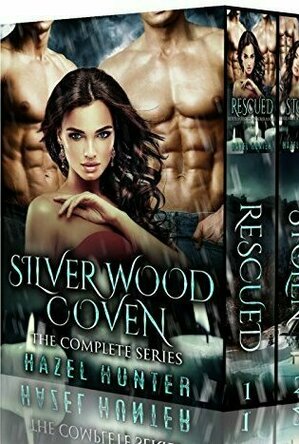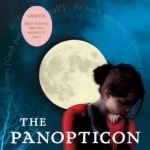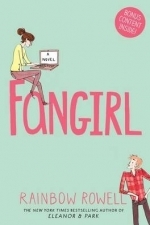
Little Nugget - Baby Journal
Photo & Video and Lifestyle
App
***Featured by Brit+Co as a "BEST NEW APP"*** Use Little Nugget® to capture pregnancy and baby...

Family Album Mitene
Photo & Video and Social Networking
App
Watch your children grow up. Anytime. Anywhere. Always! Organize and share unlimited photos and...

iCycleBeads Lite - Plan or Prevent Pregnancy
Health & Fitness and Medical
App
The iCycleBeads Lite app enables you to plan or prevent pregnancy easily and effectively by simply...

Kaave - Coffee Cup Fortune Readings
Entertainment and Lifestyle
App
*** #1 - AppStore Turkey Entertainment Apps *** *** 25 million users have had more than 600 million...

MyHeritage
Reference and Social Networking
App
Build your family tree on the go - MyHeritage genealogy puts your family history right at your...

Baby Boom! - My Newborn Sister
Games and Entertainment
App
~~> OMG! Mommy’s having a baby and you have to help her get to the hospital on time! ~~> The...

Moonly
Education, Lifestyle and Reference
App
Full guide of lunar cycles & phases. Daily affirmations. Astrology zodiac charts Live by the moon...
Astrology Moon Moon Phases Lunar Cycle Spirituality

Silver Wood Coven: The Complete Series
Book
What if you had no memory, not even of being a witch? Rescued (Silver Wood Coven #1) Templar...
Adult Paranormal Romance Ménage
Eilidh G Clark (177 KP) rated The Panopticon in Books
May 13, 2017
At the beginning of the novel, the fifteen-year old Anais is governed by the state. In contemporary British society, a child under the age of sixteen, regardless of her social situation is, by law, governed by an adult/s. Anais has lived her life in the care system with the exception of a short period in which she lived with an adopted mother. It is for this reason that she is able to see society from outside of the family unit. By creating the motherless child, Fagan presents Anais as the ‘other’ from both a societal perspective- ‘communities dinnae like no-ones,’ and from the viewpoint of the protagonist, ‘What they really want is me dead,’ (TP, p.23). Without a family, and through a lack of legitimate information regarding her birth mother, Anais believes that she was created in a lab:
I’M AN experiment. I always have been, It’s a given, a liberty, a fact. They watch me. Not just in school or social-work reviews, courts or police cells – they watch everywhere. […] They’re there when I stare too long or too clearly, without flinching. […] They watch me, I know it, and I can’t find anywhere any more – where they can’t see, (TP, Prologue).
Note that in the above quotation, the protagonist describes her assumed identity as a ‘liberty’. Liberty, in this case, means freedom from the oppressive nature of the family. Although Anais desires the nurturing aspect of the family, ‘I just want my mum,’ (Tp, p.269), her lack of family exposes her to the nature of contemporary society as a constant monitoring of civilians. In the above quotation, the repetition of ‘they’ suggests that she feels outside of the norm. The most important aspect of the above quote however, is that it is told from the protagonist’s thoughts. While Fagan gives Anais a certain amount of autonomy through both the first-person narrator, and the vernacular, the reliability of the narrator is increased by presenting the characters inner thoughts. While this limited autonomy is important, full autonomy is restricted by age. Bever suggests that ‘the capacity for individuals to become autonomous seems radically dependent on the contingent historical circumstances and societies into which they are born. Anais’ awareness of herself as the ‘other’ allows her an insight into the oppressive role of society, which is normally hindered in childhood due to the role of the family and it’s teaching of norms and values.
The sense of otherness can also be looked at in regard to Scotland and its role within the UK. The UK is a family of four countries under one state. Regardless of Scotland’s devolution, it has still to comply with a large amount of UK policies. Scotland has different values and goals to that of the UK making it ‘other’. With a different cultural identity to its neighbours, many Scottish citizens are seeking independence to protect its dwindling identity, whilst for others, independence is political.
Anais’ awareness of social control causes her a feeling of shrinking. This, according to her social workers is an identity problem:
Fifty odd moves, three different names, born in a nuthouse to a nobody that was never seen again. Identity problem? I dinnae have an identity problem – I dinnae have an identity, (TP, p.99).
Anais’ reaction in the above statement describes her lack of knowledge of her ancestry. I would argue that her identity is forced upon her from the fifty-one times that she has moved home, the care system, the solitary time in which she was adopted, the relationships she has had - both female and male, her friends but more importantly, from the unreliable account of her birth from the monk in the metal institution. The lack of family does not alter the fact that she is alive, and that all the fragments of her past make up an identity. For Anais, ‘Families are overrated […] ‘I umnay fooled. Not by families,’(TP, p.63-64). Like Anais, Scotland’s identity is ambiguous. Independence will allow Scotland political autonomy, however, within a global economy, Scotland still has limited autonomy. As culturally ‘other’ however, Scotland has already achieved autonomy with or without a state through its language, its people and its traditions.
Fagan demonstrates the difficulty of total autonomy though Anais and the birthday game, a game in which she creates her own identity. When she turns sixteen years of age, Anais is free from societal care and flees from her imprisonment, ‘I am Frances Jones from Paris. I am not a face on a missing-person poster, I am not a number or a statistic in a file. I have no-one watching me, […] I−begin today,’ (TP, p.323-324). ‘I’ suggests singularity and is still opposite to ‘them’ or ‘we’. Autonomy is therefore, ambiguous; Anais is still living within the same system under a false identity, she is therefore, segregated from everyone that she knows. Moreover, by changing Anais’ name to a name that ‘means freedom.’ (TP, p.323), Fagan is pointing out the difference between freedom and autonomy. Freedom is an emotive word, and there are two concepts of freedom – freedom from, which in Anais’ situation means freedom from the system of observation. Freedom to, however, is more problematic as Anais can never be free from the neoliberal system of rules and law – as Scotland would see in the case of independence. I would therefore conclude that Anais/Scotland has always has limited autonomy through cultural identity and history. I believe autonomy can only reside within the system through cultural and individual imagination and not out with it.
What does this mean for Scotland? If Scotland is part of the global community, can it become an autonomous nation? Is there a solution or should Anais/Scotland accept that cultural autonomy is imagined or self-contained. Can a collective identity and imagination change the political system? Finally, can culture survive without independence?
Bibliography
Crupp, Tyler, ‘Autonomy and Contemporary Political Theory’, in Encyclopaedia of Political Theory, ed. Mark Bevor (London: Sage Publications, 2010)
Fagan, Jenni, The Panopticon (London: Windmill Books, 2013), p.6.
Windmill Books. (2013). Granta Best Young British Novelist Jenni Fagan, . accessed 22 November 2015. Published on Apr 16, 2013
Kaysee Hood (83 KP) rated Fangirl in Books
Nov 16, 2017
As we grow to become adults we must venture through events of many firsts like kissing, love, heartbreak, and more. It is how we figure out who we are, who we want to be, and where we want to go even if sometimes the road is not easy to travel; however, for Cath she was never alone with her twin sister and she never experienced much other than living through Wren. This was until Freshmen year of college because Wren wants to separate herself from Cath. They've done everything together since birth. Cath does not want this. Cath does not want the space. She's scared not to have Wren feet away. She's fearful of the strangeness college will offer. She's terrified she's crazy and people will find her weird for the Simon and Baz fanfics she's written.
Wren does not give in. She moves in with her roommate, Coutrny, and spends her free time getting drunk at parties. She distances herself from Cath to the point they do not even speak. Thus Cath finds out who she is under the layers she’s wrapped around herself since her mom left without Wren to hold her hand and keep her steady. Oh boy, does this journey give her more adventures she has ever had in the last eighteen years of life all because of Nick (writing partner), Reagan (her roommate), and most importantly Levi (the boy who is always waiting outside her dorm for Reagan). There are other important characters at play in Cath’s life. Miniature quests wrapped around the biggest one of all: Cath learning to be her own person.
Rowell’s style is very pleasing when it comes to the flow between Cath around people in real life and how Cath is when she is logged in FanFixx posting Carry On, Simon chapters. We can relate to the girl who has hidden in her room relying on Wren to give little breathes of life from the one she is not living. She is realistic and not a carbon copy twisted to fit into a new plot to gain readers. In general Rowell writes her characters exquisitely as they stand out being not only realistic versions of possibly real people we could run into on the street, but all have their own lives not pieced together solely to further the plot for Cath alone shown with each word written through their actions or when they speak. Each could stand alone as interesting additions instead of misplaced messes. Even the subplots do not feel tacked on and further the story until the final page is done where it is easy to see how each line led to the end.
By the end of it all none of it felt overdone or predictable and I personally stood behind Cath cheering for her. Anyone could read Fangirl and enjoy Cath’s voyage alone as a Freshmen in college, but I think the fangirls and fanboys might enjoy it a bit more. Pick up a copy as soon as possible to learn how Cath’s story ends.

